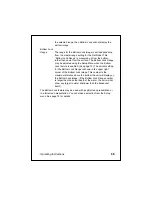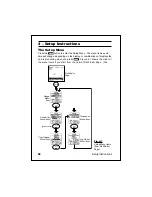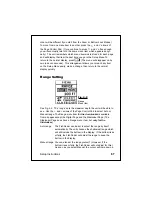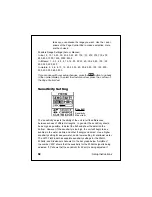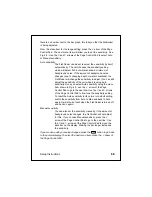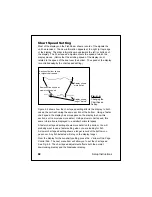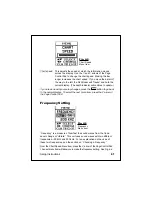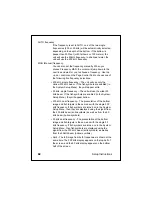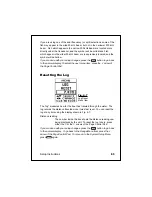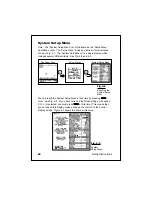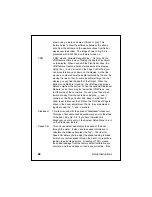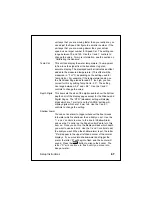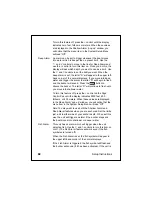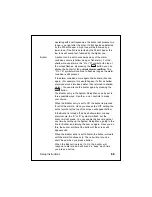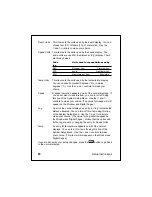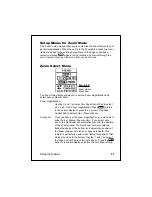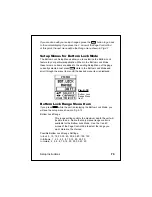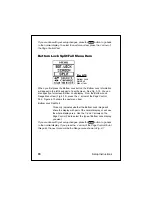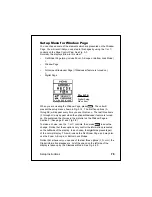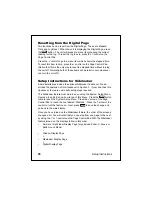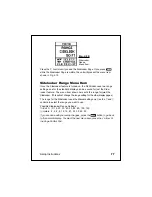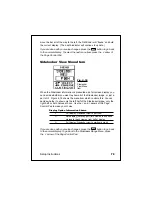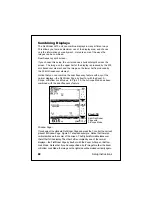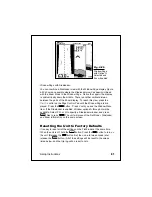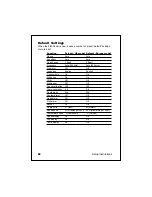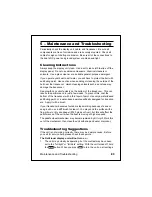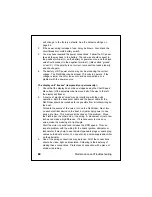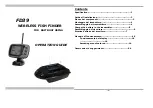
69
Setup Instructions
operating
with
dual
frequencies,
the
buzzer
will
produce
two
tones—one right after the other. If a fish has been detected
by the 200 kHz beam, a high tone will be followed by a
lower tone. If the fish is detected by the 50 kHz beam, the
low tone will sound first, followed by the higher one.
Buzzer
A buzzer can be set to sound when any of the alarm
conditions occurs (shallow, deep, or fish alarm). For the
shallow or deep alarms, the “S” or “D” symbol at the top of
the screen flashes. By pressing the
CLEAR
button, you can
silence the buzzer for the
current alarm condition. The
“S” or “D” symbol will continue to flash as long as the alarm
condition is still present.
If the alarm condition occurs again, the buzzer will sound
again. (For example, this would happen if, after a shallow
alarm you moved into deep water, then returned to shallow
water.) You can silence the buzzer again by pressing the
CLEAR
button.
The Buzzer entry in the System Setup Menu can be set in
three possible ways. Use the < and > controls to make
your choice.
When the Buzzer entry is set to Off, the buzzer is silenced
for all of the alarms. Once you choose the “Off” setting, the
buzzer symbol at the top of the screen will appear hollow.
If the Buzzer is turned off, and a shallow alarm or deep
alarm occurs, the “S” or “D” symbol will flash, but the
buzzer will not sound. You can enable the buzzer again at
any time by calling up the System Setup Menu, going to the
line for Buzzer, and turning the item on again. Once you do
this, the buzzer symbol at the bottom of the screen will
appear solid.
When the Buzzer entry is set to Alarm, the buzzer will work
with the alarm functions only. The unit will not sound a
short “beep” when you press a button.
When the Buzzer line is set to On, the buzzer will
respond to alarms, and will sound a “beep” each time
you press a button.
Содержание L470
Страница 1: ...FishFinder L470 Instruction Manual Raymarine ...
Страница 96: ...90 Maintenance and Troubleshooting ...

